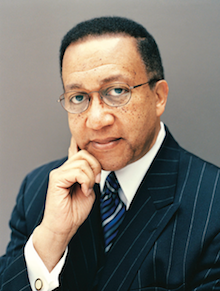July 17, 2015

Benjamin F. Chavis, Jr., NNPA Columnist
One’s worldview or social perspective is mainly informed by a matrix of different socioeconomic and political circumstances. A polling of Black America about the current “recovery” of the economy of the United States would produce a dramatically different set of responses from the polling results of White America That is because the vast economic inequality between Blacks and Whites in the U.S. today appears to be escalating.
According the latest reports from the U.S. Department of Commerce, the steady overall pace of the recovery of the economy continues grow and expand. Yet while there was a .7 percent decline in the economy for the first quarter of 2015, the forecast for the remainder of 2015 looks very favorable and profitable, especially for those who are already wealthy.
I have always believed that Black Americans should become much more aware of the economic trends that are affecting the U.S. economy as a whole. Too often we get left out of the national discussion concerning the economy because we do not consistently articulate the overall daily national economic interests of 45 million Black Americans.
While it is important to continue to cite the fact that the current annual Black American spending in the U.S. economy totals more than $1.2 trillion, how do we really leverage that fact to help empower Black American families and communities to get out of poverty? Economic productivity is not just about how much a person or a group spends. Economic productivity is also about how much a person or a group produces, invests, and leverages to achieve sustainable financial development and empowerment.
The wealth gap between Black and White Americans continues grow wider. The U.S. Census Bureau reported in 2011 that the median White household had $111,146 in wealth holdings, compared to only $7,113 for the median Black household. Four years later, that gap has widened to the point that it is now being called the “racial wealth gap.”
The state of Black America’s economy has to be a priority issue that is addressed in every municipality and in every state where Black Americans are concentrated. This also needs to be addressed as well at the federal level not once a year but every day of every month in each of the four quarters that the Gross Domestic Product (GDP) is determined and debated. The GDP, as defined by the U.S. Department of Commerce Bureau of Economic Analysis, is the value of the aggregate production of goods and services in the United States and that is adjusted for price changes.
Black American economists and professionals in the financial services arena should formally issue on a quarterly basis a report on the Black American GDP. Do not misunderstand what I am calling for and the reason for doing such a report routinely each quarter. This is not just about statistics. This is about the need to make the national economic debate more inclusive of the economic interests of the Black American community.
We are grateful to the National Urban League for its annual report on the State of Black America that is published each year. Its 2015 report, State of Black America® – “Save Our Cities: Education, Jobs + Justice,” that documented the facts that economic inequality between Black and White Americans was rapidly increasing across the nation. Marc Morial, president and CEO of the National Urban League, emphasized, “Black America is in crisis – a jobs crisis, an education crisis and a justice crisis.” I agree with Morial and I would add that Black America’s crisis today is also an economic crisis.
We should remain vigilant and not let the disparities or the increasing economic inequalities break our spirit. We have been through hard time before today and we will face hard socioeconomic times in the future. Our ancestors did not let racism, injustice and inequity break their collective and individual determination to make progress even in the face of brutal and institutionalized oppression. Our struggle and labor for economic equality will continue in America and throughout the world. Let’s keep pushing forward to advance the social and economic progress of Black America.
Benjamin F. Chavis, Jr. is the President and CEO of the National Newspaper Publishers Association (NNPA) and can be reached for national advertisement sales and partnership proposals at: dr.bchavis@nnpa.org; and for lectures and other professional consultations at: http://drbenjaminfchavisjr.wix.com/drbfc.

